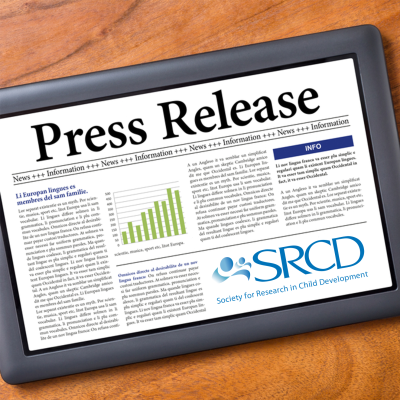Positive Feelings About Race, Ethnicity Tied to Stronger Development in Minority Youth
PRESS RELEASE / CHILD DEVELOPMENT: Embargoed for Release on February 3, 2014
The more positively minority youth feel about their ethnicity or race, the fewer symptoms of depression and emotional and behavior problems they have. That’s the conclusion of a new metaanalysis summarizing 46 existing studies.
Published in the journal Child Development, the meta-analysis was conducted by researchers at Brown University, the University of Minnesota, Arizona State University, the University of Illinois at Chicago, and the University of Miami.
The researchers also found that young people who had positive feelings about their racial or ethnic identity had better social interactions and self-esteem, did well in school, and had fewer problems with drugs or alcohol.
“Ethnic and racial identity is a complex issue among minority youth. Feeling positively about ethnic or racial identity is not going to solve all the issues minority youth face, but this research shows that it clearly helps them in many ways,” says Deborah Rivas-Drake, formerly at Brown University, now associate professor of psychology and education at the University of Michigan, who led the metaanalysis. “This research also refutes the notion that positive racial or ethnic identity is somehow related to having not-so-positive attitudes toward academic achievement.”
In their analysis, the researchers sought to determine how ethnic-racial affect—that is, how an individual feels about his or her ethnicity or race—is related to well-being, distress, health risk, and academic adjustment in youth; most previous research in this area has focused only on psychological outcomes. They also looked at how links between positive ethnic-racial affect and the different outcomes varied across age and ethnic-racial groups. Together, the 46 studies they reviewed looked at African American, Latino, Asian American and Pacific Islander, and American Indian youth in the United States, primarily middle and high school students.
“Our findings show that the positive associations between ethnic-racial affect and key outcomes function similarly across groups of children differing in age, gender, and particular ethnicracial categories,” adds Rivas-Drake. “Young people who are exposed to experiences that promote positive feelings about their ethnic or racial heritage—such as when minority parents teach their children about their ethnic heritage or instill pride in their race—may reap not only psychological benefits but also greater commitment and connection to academics. They may also have less risk of unhealthy behaviors such as smoking and drug use, all of which have important long-term implications for health, well-being, and economic opportunity.”
The study was funded by the Society for Research in Child Development, the Society for Research on Adolescence, Division 45 of the American Psychological Association, the Center for the Study of Ethnicity and Race in America and the Center for the Study of Human Development at Brown University, and the T. Denny Sanford School of Social and Family Dynamics at Arizona State University.
###
Summarized from Child Development, Feeling Good, Happy, and Proud: A Meta-Analysis of Positive Ethnic-Racial Affect and Adjustment by Rivas-Drake, D (formerly at Brown University, now at the University of Michigan), Syed, M (University of Minnesota), Umaña-Taylor, A (Arizona State University), French, S (University of Illinois at Chicago), Schwartz, SJ (University of Miami), and Lee, R (University of Minnesota). Copyright 2014 The Society for Research in Child Development, Inc. All rights reserved.


